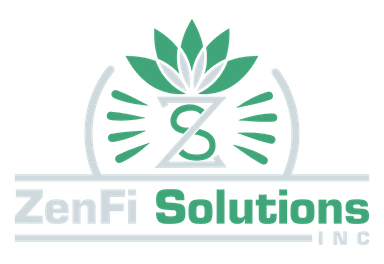
Building a Brighter Future: Strategies for Latino Success in the "Build Back Better" Agenda
For decades, the Latino community has been a powerful and vibrant force in the American tapestry. With their contributions to culture, commerce, and innovation, Latinos have enriched the nation while facing persistent challenges in areas like education, healthcare, and economic opportunity. Now, with the ambitious "
Build Back Better
" agenda on the horizon, a unique opportunity arises to address these disparities and pave the way for a brighter future for Latino families.
This article delves into the "
Build Back Better
" agenda through the lens of Latino success, highlighting key strategies that can empower this growing community and unleash its full potential.
1. Investing in Latino Education:
Education is the bedrock of individual and community prosperity. The "
Build Back Better
" agenda can support Latino success by:
Expanding access to early childhood education programs:
Early learning is crucial for cognitive development and school readiness. Providing affordable, high-quality preschool and childcare, particularly in underserved Latino communities, is a foundational investment.
Strengthening K-12 education:
Allocating resources to address language barriers, cultural relevance in curriculum, and professional development for educators who understand the needs of Latino students are crucial.
Making college more affordable and accessible:
Rising tuition costs disproportionately impact Latino students. Increased Pell Grant funding, targeted scholarships, and debt-free college initiatives can alleviate the financial burden and encourage higher education attainment.
Supporting career and technical education:
Equipping Latino students with vocational skills in high-demand fields opens doors to secure jobs and financial stability.
2. Bridging the Healthcare Gap:
Latino communities face disproportionate healthcare disparities, with limited access to quality care and higher rates of chronic illnesses. The "
Build Back Better
" agenda can address these issues by:
Expanding Medicaid and Medicare access:
Ensuring affordable healthcare coverage for all, especially undocumented immigrants who currently face significant barriers, is vital.
Investing in culturally competent healthcare services:
Building a diverse healthcare workforce that reflects Latino communities and offers language and culturally sensitive care is essential.
Addressing social determinants of health:
Factors like food insecurity, lack of housing, and environmental hazards significantly impact health outcomes. Investing in community-based resources that address these determinants can improve overall health and well-being.
3. Fostering Economic Empowerment:
Latino entrepreneurs and workers are vital contributors to the U.S. economy. The "
Build Back Better
" agenda can empower them by:
Providing access to capital and resources:
Small businesses often struggle to secure loans and access investment opportunities.Targeted grants, loan programs, and technical assistance can empower Latino entrepreneurs to launch and grow their businesses.
Investing in infrastructure and workforce development:
Upgrading infrastructure in Latino communities and providing skills training in green energy, clean technology, and other emerging sectors can create new job opportunities and boost economic mobility.
Strengthening worker protections:
Addressing wage theft, discrimination, and inadequate workplace safety measures is crucial to ensuring fair treatment and economic security for Latino workers.
4. Promoting Immigration Reform:
A pathway to citizenship for undocumented immigrants, who contribute significantly to the U.S. economy and tax base, would unlock their full potential and strengthen communities. The "
Build Back Better
" agenda can pave the way for comprehensive immigration reform by:
Supporting a pathway to citizenship:
Offering undocumented immigrants a legal path to citizenship strengthens the economy, increases tax revenue, and fosters integration into the social fabric.
Reuniting families and protecting vulnerable immigrants:
Streamlining family reunification processes and protecting DACA recipients and TPS holders who contribute positively to their communities are essential aspects of a humane and just immigration policy.
5. Building Strong Partnerships:
Effective solutions require collaboration between the federal government, state and local governments, community organizations, and the Latino community itself. The "
Build Back Better
" agenda can foster these partnerships by:
Engaging Latino communities in decision-making:
Ensuring the priorities and voices of Latino communities are heard and reflected in policy development is crucial for achieving meaningful outcomes.
Empowering and supporting community-based organizations:
These organizations serve as trusted partners and have deep roots in Latino communities. Providing them with resources and support allows them to deliver essential services and advocate for systemic change.
Leveraging the power of data and technology:
Data can inform policy decisions and address inequities. Investing in data collection and analysis focused on Latino communities can guide evidence-based interventions and track progress.
By prioritizing these strategies, the "
Build Back Better
" agenda can be a transformative force for Latino families and communities. It can contribute to a more equitable society where Latinos have the opportunity to thrive and contribute their full potential to the nation's success.
Building a brighter future for the Latino community requires a commitment to action, collaboration, and ongoing investment. The "
Build Back Better
" agenda, if crafted with inclusivity and intentionality, can serve as a powerful catalyst for this.
Explore More Financial Insights
Browse our handpicked articles for fresh insights and strategies in finance. Your next financial breakthrough could be just a click away with ZFS Inc.

627 Cape Coral Pkwy W #202, FL 33914
Assisting with Student Loan Document Preparation Zenfi Solutions (ZFS) is dedicated to professional document preparation, and we do not negotiate, adjust, or settle debts. Every federal student borrower has the opportunity and is encouraged to apply for federal repayment or forgiveness programs directly through the US Department of Education at no cost. ZFS is not a lender or legal advice service. For legal or financial advice, please consult with a professional attorney or financial advisor. Each revision maintains the original message while improving clarity and conciseness, ensuring that the information is easily digestible and accessible for readers.


